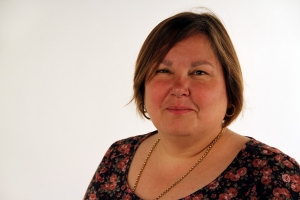Linda Martz
Professor
- Department: History and Politics
- Complementary Department(s): Comparative Literature and English
See Courses >>

Professor Martz’s research interests include women’s history and gender studies, particularly women’s access to institutions and women’s activism, as well as the interface between religion and public life. She researches and publishes on nineteenth and early twentieth century British movements where these interfaces were significant, such as the Salvation Army and the militant suffrage movement, as well as on aspects of California’s regional religious culture during the same period, with a special interest in Pentecostalism and early Fundamentalism.
Education/Degrees
- Doctorate, University of Paris VII
- DEA, University of Paris VII
- Maîtrise, University of Paris VII
- Certificate Year in Teaching English as a Second Language/Applied Linguistics, UCLA
- BA, Scripps College
Publications
- “Mary Neal and Emmeline Pethick-Lawrence: from mission to activism.” Women’s History Review 23.4, 2014, pp 620-641.
- “Moved to Minister: Christabel Pankhurst and Aimee Semple MacPherson in Los Angeles.”, Women on the Move: refugees, migration and exile. Ed. Fiona Reid and Katherine Holden. Newcastle: Cambridge Scholars Publishing, 2010. 76-92.
- “Frederick Pethick-Lawrence(1871-1961) : L’homme parmi les suffragettes.” Ces homes qui épousèrent la cause des femmes. Ed. Martine Monacelli and Michel Prum. Paris : Les Editions de l’Atelier, 2010.163-176.
- 60 étapes-clé de la civilisation anglo-saxonne (all-French edition). C. Loubinac, C. Loubignac, F. Fichaux, A. Higgie, and L. Martz. Collection Optimum, F. Fichaux editor. Paris: Editions Ellipses, 2008.
- Linda Martz and Anita Higgie, Eds. Notions of Identity in Detective Fiction. Cambridge Scholars Publishing, November 2007.
- “Suffragette Fictions: the re-construction of militant identity in Gillian Linscott’s Nell Bray novels.” Notions of Identity in Detective Fiction. Linda Martz and Anita Higgie, Eds. Cambridge Scholars Publishing, November 2007 153-163.
- 60 fiches de civilisation britannique et américaine (bilingual edition). With A. Higgie et C. Loubinac. (Paris: Ellipses Edition) 2006. Second edition 2012.
- Comment préparer le TOEFL en 10 jours, with R. Rast and F. Fichaux, Collection Optimum, F. Fichaux editor (Paris: Ellipses Edition), 2006.
- “An AIDS-Era assessment of Christabel Pankhurst’s The Great Scourge and How To End It.” Women’s History Review 14.3 /4, November 2005, 435-447.
- Fiches de civilisation britannique et américaine (bilingual edition). With C. Loubinac. (Paris: Ellipses Edition). Fourth edition, 2018.
- “La Plume Blanche: patriotisme, pacifisme, et neutralité chez les suffragettes britanniques.” 1914: Neutralité, Neutralismes en Question, edited by Ineke Bockting, Béatrice Fonck, and Pauline Piettre, Peter Lang, 2017, pp 257-270.
- “Calling vs. Profession: the Arguments over Professionalizing Nursing in Victorian and Edwardian Britain.” La Vocation au Féminin, Résonnances 15-1, 2015, pp 67-82. (appeared 2016)
- Linda Martz and Ineke Bockting, Eds. Both Swords and Ploughshares: Interactions of War, Peace, and Religion in America from the War of Independence to the Present. Cambridge Scholars Publishing, 2015.
- “The World’s Unrest: War in the Writings of Christabel Pankhurst, British Suffragette Turned American Fundamentalist.” Both Swords and Ploughshares: Interactions of War, Peace, and Religion in America from the War of Independence to the Present. Ed. Linda Martz and Ineke Bockting. Cambridge Scholars Publishing, 2015, pp 128-141.
- Fiches de civilisation britannique et américaine (bilingual edition). With C. Loubinac. (Paris: Ellipses Edition). Third edition, 2014.
Affiliations
Martz is a member and associate board member of the West of England and South Wales region of the Women’s History Network, and a member of the CRPA (Culture et Religions dans les Pays Anglophones), which is currently housed by the Université d’Angers.
